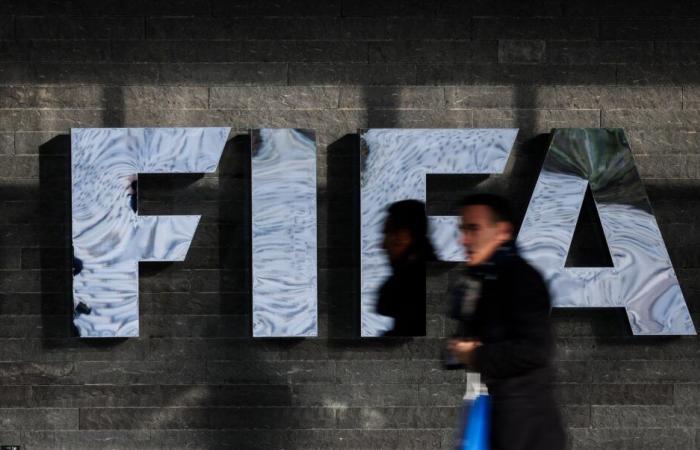
The first effects of the Diarra ruling are beginning to be felt. Handed down on October 4 by the Court of Justice of the European Union (CJEU), this judgment which denounced Fifa's regulations on transfers as being ” likely to hinder the freedom of movement of professional footballers », forced the world Football body to adjust its rules.
In an emergency, the International Federation proposed on December 23 a new “ temporary framework » for the transfer window which began on 1is January for a little over four weeks. By issuing new provisional rules, Fifa is pursuing two objectives: to allow transfers to take place during this transfer window while avoiding chaos and also to comply with EU competition law.
« This framework covers the rules governing compensation for breach of contract, joint and several liability, incentives for breach of contract, international transfer certificates and proceedings before the football court. It aims to create greater clarity and stability for future registration periods and to maintain universal rules », Specified the body, without going into technical details, in a brief press release.
An obstacle to the freedom of movement of footballers
As a reminder, the CJEU, seized by the Belgian courts, ruled in October in favor of the French international Lassana Diarra in the dispute which opposed him to Fifa for ten years on the conditions of his departure from Lokomotiv Moscow .
In August 2014, the midfielder was employed by the Russian club with which he was still engaged for three seasons, when his club terminated his contract. Due to a drastic reduction in his salary, Diarra left Lokomotiv, but the latter deemed the break unfair and demanded 20 million euros from him, later reduced to 10.5 million euros.
Consequence: the Belgian club Charleroi had given up recruiting the Frenchman for fear of having to assume part of these penalties, in accordance with FIFA regulations on transfers. By looking at these rules, the CJEU considered that two articles (6 and 17) are “ opposites » to European Union law, that they hindered the freedom of movement of professional footballers and that they “ weigh on these players and on the clubs wishing to engage them with significant legal risks, unpredictable and potentially very high financial risks as well as major sporting risks ».
“These new rules remain contrary to the CJEU ruling”
To avoid new trials, Fifa announced on November 26 that it was freezing ongoing disputes over transfers. But uncertainty prevails because the new rules of the International Federation are only temporary and those involved in European football intend to put in place a new legal framework.
And if Fifa welcomes its transitional regulation “ following a successful consultation with key football stakeholders “, she forgets to say that FIFPRO, the global footballers' union, refused to participate…
On December 24, the UNFP (the French union of professional footballers) even fired red balls at the “ temporary framework » from Fifa in a press release entitled “ So far from the mark…”. « These provisions incorporate certain requirements of the CJEU (Court of Justice of the European Union), in particular the automatic issuance of the international transfer certificate. writes the union organization.
Before continuing: “ However, on many points, these new rules remain contrary to the CJEU ruling and ultimately aim to perpetuate a fundamentally illegal “transfer system”. Furthermore, as far as the EU is concerned, following the Diarra judgment, it is clear that the regulation of the labor market can in the future only result from collective negotiation between the European social partners. »
Social partners take control
In a letter, dated December 6, but made official on December 30, the European social partners, that is to say UEFA, the national leagues in Europe, the European Club Association (ECA) and FIFPRO Europe have asked the European Commission to host discussions on ” reform of the transfer system in football “. This missive clearly aims to take control of this issue.
« UEFA and European football authorities can collectively discuss and propose their solutions on the status and transfer of professional players but also other issues such as safety and health, of major importance in our sector and the principles of the European Union », Write the signatories.
These bodies propose to conduct discussions within the framework of the EU Professional Football Sectoral Social Dialogue Committee (EU SSDC) with the aim in particular of “ strengthen financial stability through solid regulatory frameworks that promote player mobility and rights “. A sign that times have changed, Fifa would only be invited to the Committee in an advisory capacity.
The journal of free intelligence
“It is through extensive and exact information that we would like to give to all free intelligences the means of understanding and judging world events for themselves. »
Such was “Our goal”as Jean Jaurès wrote in the first editorial of l'Humanité.
120 years later, it hasn't changed.
Thanks to you.
Support us! Your donation will be tax-free: giving €5 will cost you €1.65. The price of a coffee.
I want to know more!





